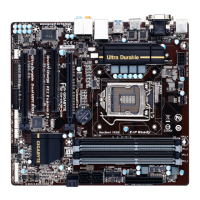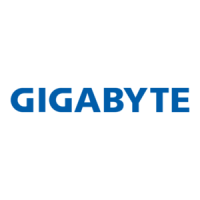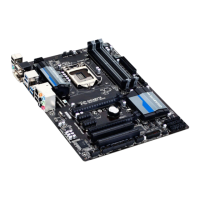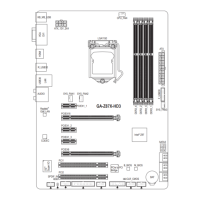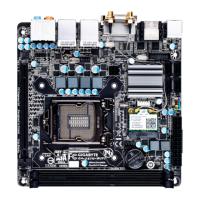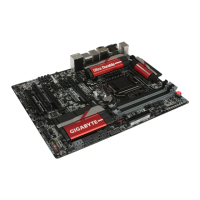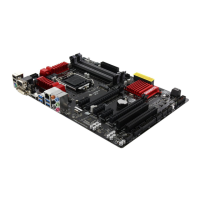1-7 Back Panel Connectors
(Note) TheDVI-DportdoesnotsupportD-Subconnectionbyadapter.
After installing the HDMI device, make sure to set the default sound playback device to HDMI.
(Theitemnamemaydifferdependingonyouroperatingsystem.Thescreenshotbelowisfrom
Windows8.)
In Windows 8, select All apps>Control Panel>Hardware and
Sound>Sound>Playback,setIntel(R)DisplayAudio to the
default playback device.
• Whenremovingthecableconnectedtoabackpanelconnector,rstremovethecablefromyour
device and then remove it from the motherboard.
• When removing the cable, pull it straight out from the connector. Do not rock it side to side to prevent
an electrical short inside the cable connector.
USB 2.0/1.1 Port
TheUSBport supportstheUSB 2.0/1.1 specication.Usethis portforUSB devices suchasa USB
keyboard/mouse,USBprinter,USBashdriveandetc.
PS/2 Keyboard/Mouse Port
Use this port to connect a PS/2 mouse or keyboard.
D-Sub Port
The D-Sub port supports a 15-pin D-Sub connector and supports a maximum resolution of 1920x1200
(theactualresolutionssupporteddependonthemonitorbeingused).Connectamonitorthatsupports
D-Sub connection to this port.
DVI-D Port
(Note)
TheDVI-DportconformstotheDVI-Dspecicationandsupportsamaximumresolutionof1920x1200
(theactualresolutionssupporteddependonthemonitorbeingused).Connectamonitorthatsupports
DVI-D connection to this port.
Optical S/PDIF Out Connector
This connector provides digital audio out to an external audio system that supports digital optical audio.
Before using this feature, ensure that your audio system provides an optical digital audio in connector.
HDMI Port
The HDMI port is HDCP compliant and supports Dolby True HD and DTS HD
MasterAudioformats.Italsosupportsupto192KHz/24bit8-channelLPCMaudio
output. You can use this port to connect your HDMI-supported monitor. The maximum supported resolution
is 4096x2160, but the actual resolutions supported are dependent on the monitor being used.
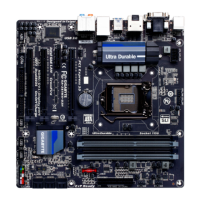
